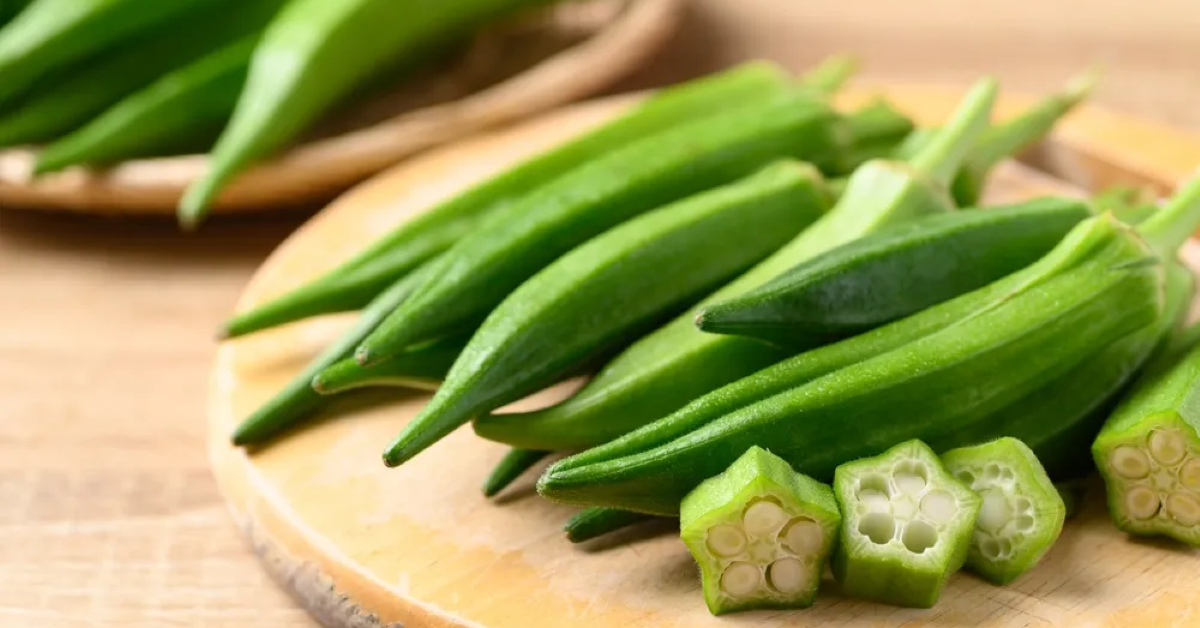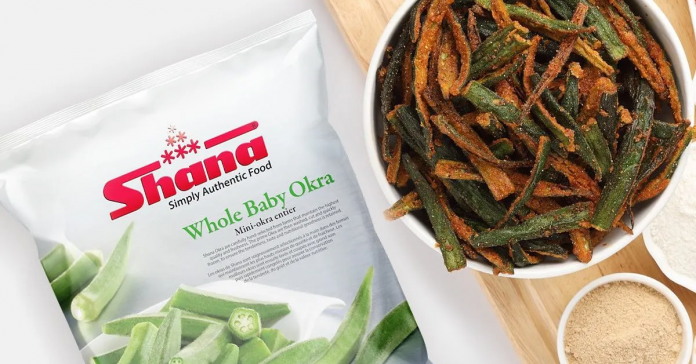Ever wondered why okra, also known as “lady’s finger or bhindi”, deserves a spot on your plate?
This green pod might not be the most popular veggie in your kitchen, but it’s packed with incredible health benefits.
So, come! Let’s uncover the top 5 health benefits of okra and how you can easily add it to your diet to make the most of this nutritious vegetable.
Health benefits of okra

1. Rich in nutrients
Okra is a tiny vegetable with a big nutritional punch.
A single cup is loaded with essential vitamins and minerals like vitamins A, C, and K. Vitamin A supports eye health, vitamin C boosts the immune system, and vitamin K is crucial for blood clotting.
Okra also provides magnesium, folate, and vitamin B6, which are all important for overall health. With only 35 calories per cup, okra is a nutrient-dense addition to any meal.
2. Supports heart health
Heart disease is a major health concern, but including okra in your diet can help support heart health.
Okra is rich in polyphenols, antioxidants that protect the heart by reducing inflammation and preventing cholesterol buildup in arteries.
Additionally, okra’s mucilage can bind to cholesterol during digestion, helping to eliminate it from the body. Studies have also shown that okra can lower blood cholesterol levels, making it a heart-healthy choice.
3. Helps manage blood sugar levels
One of the standout benefits of okra is its ability to help regulate blood sugar levels.
The high fiber content in okra slows down sugar absorption in the digestive tract, preventing spikes in blood glucose levels.
Studies have revealed that okra extract can reduce blood sugar spikes after meals. This makes okra a great food choice for those looking to manage their blood sugar levels naturally. Additionally, okra may help improve insulin sensitivity.
4. Aids digestive health
Okra is packed with fiber, which is essential for a healthy digestive system.
The soluble fiber in okras adds bulk to the stool, making it easier to pass and preventing constipation. The mucilage in okras also has a soothing effect on the digestive tract, reducing inflammation and discomfort.
Regular consumption of okras can promote a healthy gut and reduce the risk of colorectal cancer, given its high fiber and antioxidant content.
5. Promotes healthy pregnancy
For expectant mothers, okra is a fantastic dietary addition.
It is rich in folate, a B vitamin essential for fetal development. Folate helps prevent neural tube defects in the developing fetus. A single cup of okra provides around 15% of the recommended daily intake of folate, making it a great choice for pregnant women looking to support their health and their baby’s development.
Incorporating okra into your diet
Adding okras to your diet is simple and delicious.
You can roast it by tossing it with olive oil and your favorite spices, then roasting until tender. Stir-fry sliced okras for a nutritious boost or add it to soups and stews like gumbo.
Grill okra until slightly charred for a smoky flavor, or just make a savory bhindi gosht or bhindi masala to give a traditional touch.
Shana bringing quality okra to you
At Shana, we know how important it is to have convenient, quality ingredients.
Our frozen okras are harvested at peak freshness and frozen quickly to lock in all its nutrients. No water is added during the IQF (Individual Quick Freezing) process, so you’re getting the best nature has to offer.
You can enjoy the benefits of fresh okras without the hassle of preparation. Simply open a pack of Shana’s frozen okras and add it directly to your favorite dishes.
With Shana, enjoying these benefits is a breeze. So, why not add some green to your meals and see the difference it makes?
Embrace the benefits of okras today, and take a step towards a healthier, happier you.
References
- U.S. Department of Agriculture. (n.d.). Okra, raw. FoodData Central. Retrieved from https://fdc.nal.usda.gov/fdc-app.html#/food-details/169260/nutrients
- Fan, S., Zhang, Z., Wang, Y., & Liang, J. (2016). Protective effects of okra polysaccharides on oxidative stress in mice. Nutrition and Metabolism, 13, 60. https://doi.org/10.1186/s12986-016-0135-8
- Sabitha, V., Ramachandran, S., Naveen, K. R., & Panneerselvam, K. (2011). Antidiabetic and antihyperlipidemic potential of Abelmoschus esculentus (L.) Moench in streptozotocin-induced diabetic rats. Journal of Pharmacy and Bioallied Sciences, 3(3), 397-402. https://doi.org/10.4103/0975-7406.84447
- Prasad, S., & Kalra, N. (2011). Dietary constituents as a future approach for cancer therapy. Pharmacological Research, 64(6), 523-535. https://doi.org/10.1016/j.phrs.2011.09.001
- Bakris, G. L., Fonseca, V. A., Katholi, R. E., McGill, J. B., Messerli, F. H., Phillips, R. A., … & Sowers, J. R. (2010). Metabolic effects of carvedilol vs metoprolol in patients with type 2 diabetes mellitus and hypertension: a randomized controlled trial. Journal of the American Medical Association, 303(21), 2263-2271. https://doi.org/10.1001/jama.2010.761

